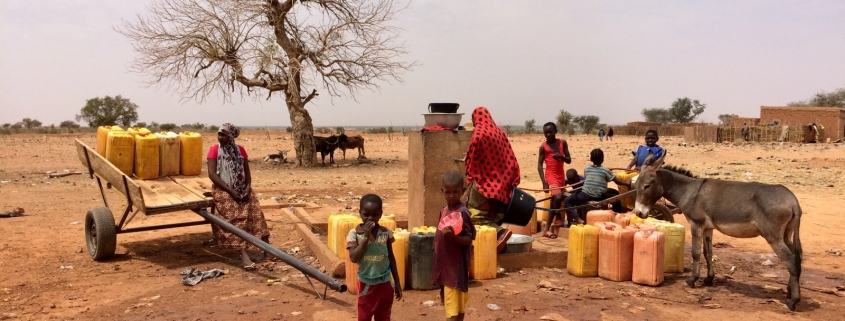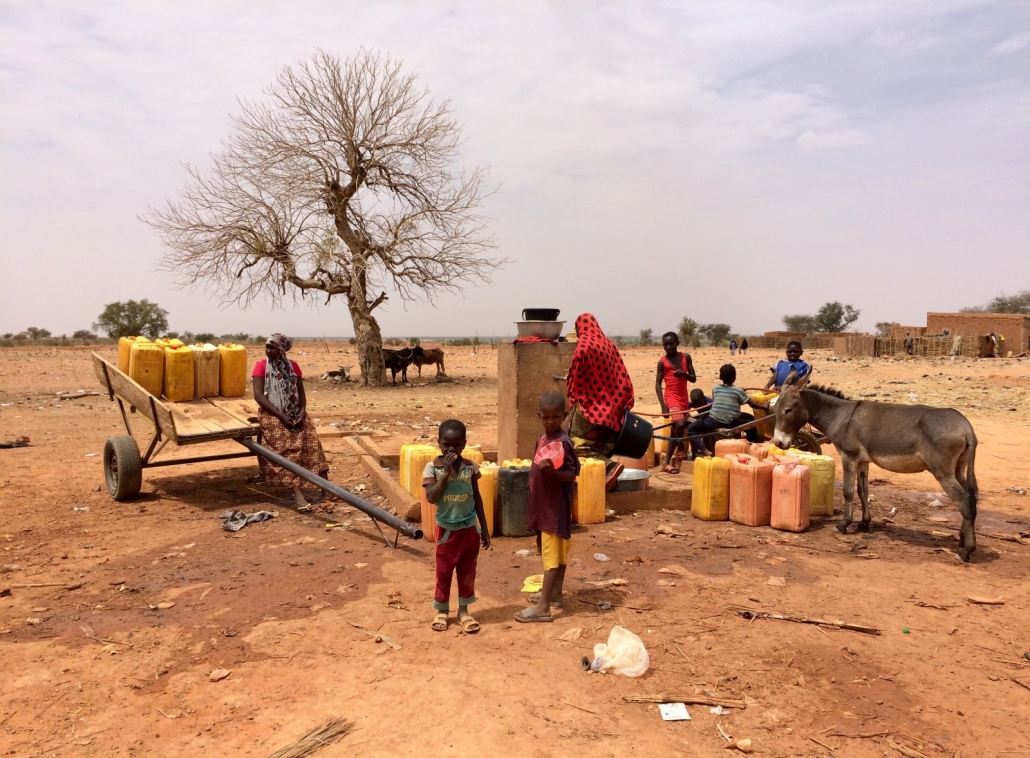HotSpots H2O: In Niger, Thousands Flee Attack That Cut Water to 35,000 Refugees
Filling jerrycans at a water point in Niger. Photo courtesy of Wikimedia Commons.
Dozens of gunmen descended last week on Intikane, a town in western Niger that had been hosting 35,000 displaced people. Damage was widespread. Three people were killed in the May 31 attack, and the community’s water supply was cut, according to reports from aid agencies.
The attackers also burned relief items and cut communications by destroying mobile phone towers.
The UN High Commissioner for Refugees (UNHCR) is working to provide water to the community in the wake of the attack, emphasizing the importance of continued handwashing amid the Covid-19 pandemic.
Despite these efforts, an estimated 3,000 refugees have fled Intikane. Prior to the attack, the community was hosting around 20,000 Malian refugees and 15,000 people from Niger who were internally displaced. The two groups settled in Intikane after escaping violence in their villages.
“The heinous and senseless act against vulnerable refugees and their hosts is heartbreaking and must be condemned in the strongest terms,” Alessandra Morelli, UNHCR representative in Niger, said in a statement. Morelli added that the exodus of refugees following the attack upsets “a careful balance had been built to allow solidarity with the local communities.”
No group has claimed responsibility for the attack, but extremists with links to Islamic State groups have been active in the area for several years. Local radio reports said that troops have been deployed to secure Intikane.
The attack is consistent with a larger pattern of unrest in the Sahel, according to a statement by Jean-Pierre Lacroix, the United Nations under-secretary-general for peace operations. Lacroix noted that the Covid-19 pandemic has further destabilized the G5 Sahel group of nations, which includes Burkina Faso, Chad, Mali, Mauritania, and Niger.
“We are seeing attempts by terrorists and other groups in the region to capitalize on the pandemic to undermine state authority and destabilize governments,” Lacroix told the UN Security Council, adding that the ongoing violence was leading to civilian deaths, school closures, and cuts in basic services.
Kayla Ritter is a recent graduate of Michigan State University, where she studied International Relations and Teaching English to Speakers of Other Languages. She is currently based in Manton, Michigan. Kayla enjoys running, writing, and traveling. Contact Kayla Ritter














Leave a Reply
Want to join the discussion?Feel free to contribute!